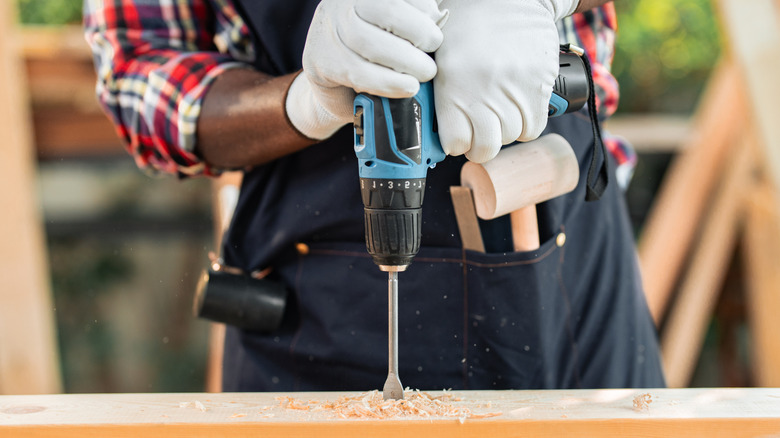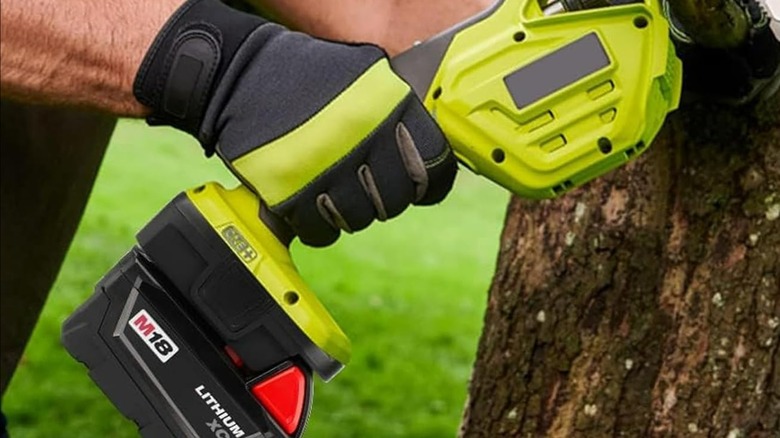How To Use Any Power Tool Battery With Almost Every Major Tool Brand
We may receive a commission on purchases made from links.
It's no secret to professionals and DIYers alike that there are a ton of power tool brands up for sale these days. The likes of Milwaukee — also the maker of useful non-power tool products — Makita, Ryobi, and more have carved out places for themselves on store shelves as well as online marketplaces. In doing so, they've offered customers all kinds of tools, in addition to battery options to run them, as they've moved away from corded power. Unfortunately, there's not a lot of mixing and matching to be done should you end up with batteries and tools from different brands. More often than not, a company's batteries are designed to work only with its own tools, preventing crossover.
If you want to use one brand's tool with another brand's battery, you don't necessarily have to buy a new tool or battery to make them match. Looking around online, one can find loads of tools and battery adapters for specific brands to make this otherwise impossible connection possible. Typically, they're much cheaper than new tools and batteries, easily accessible through the likes of Amazon, and are easy to attach to bring your tools and batteries together. Thus, they seem like miracle products, making all of the biggest names in battery-powered tools compatible. However, there's a bit more to the story. As tempting as power tools and battery adapters may seem, they're not perfect. There are some unignorable drawbacks that make them a less-than-ideal solution.
Adapters aren't recommended for multiple reasons
If you have mismatched tools and batteries across brands, an adapter might seem like a savior at first glance. In reality, you'll want to think twice before giving them a try. The biggest issue is that battery adapters tend to come from third-party sources, making them dodgy in more ways than one. They could lack in quality without a tool brand known for rigorous standards behind them, meaning they might not work for long. Their physical connection to your tools and batteries may not be secure either, opening the door for shock, flammability, or damage to the battery and tool attached.
Speaking of tool and battery damage, this is where an adapter could really become a pain. Should you use one and it harms either or both components, utilizing brand warranties could become impossible. Across the board, power tool brands tend to look at third-party accessory damage as warranty-voiding. Suddenly, that bit of money you saved using an adapter will have to go toward replacing the elements that were damaged or completely broken. This forces you to spend more than you would've if you had just purchased compatible parts to begin with, rendering the adapter purchase more of a burden than an actual help.
There are products from some brands that will work with batteries from others, like the non-Ryobi products that work with Ryobi batteries, for example. Unfortunately, this compatibility is the exception rather than the rule, leading some to give adapters a try that might prove to be more trouble than they're worth.

